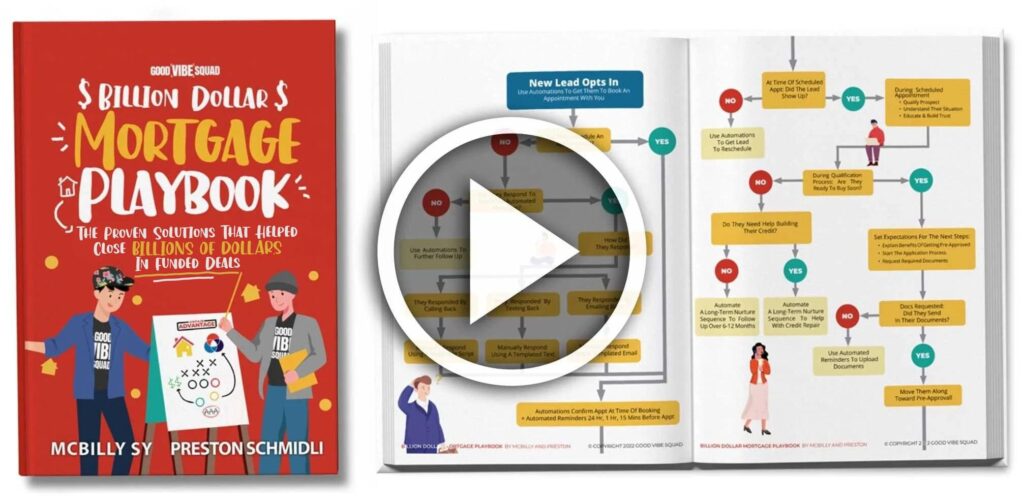The mortgage industry is highly regulated and, as a mortgage loan officer, your business strategy must abide by mortgage compliance regulations. While many loan officers and businesses pay compliance officers to monitor for compliance, all loan officers need to have a basic understanding and it is a good idea to follow a mortgage compliance checklist.
Here we look closer at mortgage compliance and what it means for you and your business.
Key Takeaways
- Mortgage compliance refers to the rules and regulations that regulate the mortgage process.
- Compliance laws exist to protect the consumer (buyer) and lender and allow tracking and improvement throughout the loan process.
- Loan officers must comply with various regulations such as TILA, HOEPA, HMDA, flood insurance, and more.
- Compliance laws are important as they help to build a relationship with clients that, in the long run, can increase referrals and leads.
- Following these regulations can enhance the mortgage process and make it fairer and more transparent, and ensure the success of a loan officer’s business.
Get Our Billion Dollar Mortgage Playbook
Get the proven strategies that helped close Billions of dollars in funded deals!
What is mortgage compliance?
Mortgage compliance refers to the rules and regulations that regulate the mortgage process. Following these regulations is a legal requirement for all loan officers and following these regulations is a key component for your success. Compliance laws are always evolving and, as a loan officer, you must be aware of these changes and how the requirements impact the way you perform in every aspect of your workday, including your marketing strategy.
Why is mortgage compliance important?
Mortgage compliance exists to protect the consumer (buyer) and lender, as well as allow tracking and improvement throughout the loan process. For the consumer, the compliance rules help to reduce their risk. Compliance can include things like being upfront about closing costs as fees, as well as helping the borrower determine necessary home and mortgage insurance. For the lender, both federal and state-level compliance rules help to reduce the financial institution’s risk.
Compliance rules are also in place to help track and improve the mortgage lending process. The collection of data through regulatory measures helps improve the process while allowing you to evaluate the current mortgage process and find ways you can improve. Following these rules helps to ensure that loan officers are following all regulatory laws.
Regulations all mortgage professionals should know
While the many compliance rules can seem overwhelming, having a basic understanding of these regulations is important. Here are a few of the main regulations every loan officer should know.
1. Truth in Lending Act (TILA)
The Truth in Lending Act (TILA) began in 1968 as a way to protect consumers from predatory lending practices. As a loan officer, this means that you must provide written disclosers in clear and simple language for all loan terms and costs, such as the annual percentage rate, the total amount financed, finance charges, monthly payments, number of payments, and the total loan cost.
2. The Home Ownership and Equity Protection Act (HOEPA)
Enacted in 1994, the Home Ownership and Equity Protection Act (HOEPA) was an amendment to the Truth in Lending Act (TILA). The goal of this act was to address abusive practices seen in refinances and closed-end home equity loans. The goal of this act is to discourage banks and other financial institutions from predatory lending. If a mortgage or home equity loan meets the high-cost coverage tests within the regulation, certain disclosures must be made by the lender. In addition, this regulation protects home buyers from overpaying for private mortgage insurance (PMI).
3. Home Mortgage Disclosure Act (HMDA)
Enacted in 1975, the Home Mortgage Disclosure Act (HMDA) mandates that mortgage lenders maintain, report, and publicly disclose certain records to monitor lending practices. Maintaining these public records allows regulators to monitor geographic targets, follow and report mortgage market statistics, and identify predatory or discriminatory lending practices.
4. Flood Zone Determination and flood insurance
Flood Zone Determination puts forth certain requirements for property located in flood zones. It puts forth flood insurance requirements for property in a flood zone and prohibits new loans on property located in specific flood hazard areas.
5. Ability-to-Repay/Qualified Mortgage (ATR/QM) rule
This rule requires lenders to make a reasonable, good-faith determination of a buyer’s ability to pay a loan according to the terms.
6. Real Estate Settlement Procedures Act (RESPA)
Enacted in 1975, the Real Estate Settlement Procedures Act (RESPA) requires that lenders and loan officers provide certain disclosures, such as the servicing disclosure statement, at the time of application or within three days of application. The act also works to eliminate abusive lending practices by eliminating the use of kickbacks for referrals and limiting the use of escrow accounts.
7. TILA-RESPA Integrated Disclosure (TRID) rule
Enacted in 2016, the rule integrates the forms required under the Truth in Lending Act and the Real Estate Settlement and Procedures Act.
8. Secure and Fair Enforcement for mortgage licensing (SAFE) act
The Secure and Fair Enforcement for Mortgage Licensing (SAFE) Act was enacted in 2008 and mandates a nationwide licensing and registration system for all residential mortgage loan originators through the Nationwide Mortgage Licensing System and Registry.
9. Telephone Consumer Protection Act (TCPA) and Do Not Call List (DNC)
These rules regulate telephone communication including telemarketing, the use of automatic dialers, pre-recorded calls, text messages, and unsolicited faxes. The DNC prohibits the contact of those on the list.
Why do loan officers need to know these regulations?
First and foremost, you are legally obligated to comply with these regulations. They are designed to protect the consumer, but also to protect the lender. In addition, they can help you to track and improve your overall loan process. They allow for complete business transparency and help to build a relationship with your clients that, in the long run, can help to increase referrals and leads.
Mortgage compliance can help your business grow
While complying with these mortgage compliance regulations may seem time-consuming and frustrating, they create the foundation of a successful business. These regulations are in place to enhance the mortgage process and make it fairer and more transparent. Following these regulations will ensure your success and help drive more business to your door.
We understand the desire to grow your business while still maintaining mortgage compliance. To learn more about the services we offer, schedule a strategy call today and let us help you boost your business.





